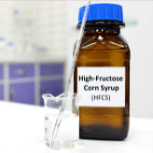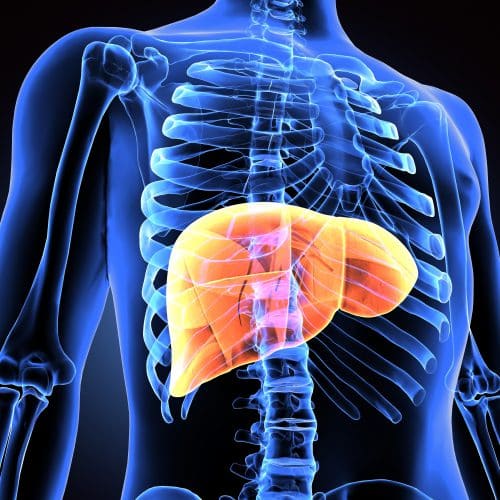How Your Health Can Be Harmed By High-Fructose Corn Syrup
There are two kinds of people in this world: those who read every food label like it’s the next Great American Novel, and those who don’t. But if you’re not part of the label-reader club, it’s probably a good idea to join!
Processed and fast foods can contain a variety of ingredients that improve taste and extend shelf life. We are going to focus on one ingredient in particular because of its potential connection to gastrointestinal (GI) conditions. This ingredient is high-fructose corn syrup (HFCS).
To help explain the potential connection between HFCS and GI conditions, Gastroenterologist Dr. David Johnson joined us on the Gastro Girl podcast to discuss his recently-published article.
Before we discuss the potential concerns around HFCS, it’s important to understand what it is and how it’s used in our food system.
What is high-fructose corn syrup?
HFCS is different from the sugar that you may have in your pantry.
Table sugar, or sucrose, is made of a combination of glucose and fructose. But HFCS is processed through corn starch which leads to a higher amount of fructose.
Dr. Johnson tells us that the food industry has been favoring HFCS because it is “much sweeter and cheaper than table sugar or cane sugar.”
What foods contain high-fructose corn syrup?
HFCS can be found in processed food and sugar-sweetened beverages (like sodas and fruit drinks). In his article, Dr. Johnson writes that “a key problem with HFCS is the overall prevalence of use, including foods that do not taste sweet, such as pizza and crackers.”
So even if you are avoiding sweet foods, you may still be getting HFCS in your diet. Which, according to Dr. Johnson, is a concern because it may “promote inflammation and immune response.”
Is high-fructose corn syrup harmful to our health?
Dr. Johnson explains that our bodies handle fructose and glucose differently.
Glucose is absorbed from the food we eat and circulates in the body as blood sugar. Glucose is the preferred energy source for our muscles and brain, but fructose is not. Fructose is “actually stored in the liver and favors fat production,” says Dr. Johnson.
The inflammation and immune stimulation by HFCS may play a role in many different conditions. But as a gastroenterologist, Dr. Johnson has focused on the potential association between HFCS and colon cancer, colon polyps, colitis, and fatty liver disease.
High-fructose corn syrup and GI conditions
Colorectal cancer and polyps
In mouse models for colon cancer, mice that were fed fructose developed tumors quicker than the other mice and the tumors were found to be taking up fructose. While mice model results cannot be directly applied to humans, the findings may help guide future research.
In humans, Dr. Johnson highlights research studies which have found an association between colorectal cancer and sugar-sweetened beverages. He thinks that HFCS may be contributing to the increasing rates of early-onset colorectal cancer.
Fatty liver
Fatty liver that’s not caused by alcohol is called non-alcoholic fatty liver disease, or NAFLD. While the causes of NAFLD are still being studied, Dr. Johnson cites the association between sugar-sweetened beverages and NAFLD in his article.
Dr. Johnson tells us that “fructose is only metabolized in the liver.” It can lead to the storage of fat in the liver and makes it hard for the liver to remove fat.
Our liver plays a large role in metabolism, medication breakdown, and detoxification. NAFLD is a huge concern because it can lead to more serious conditions such as cirrhosis of the liver or liver cancer.
The bottom line on high-fructose corn syrup
Dr. Johnson’s article states that “the global market for HFCS is projected to grow from $5.9 billion in 2019 to $7.6 billion in 2024.” This means that HFCS is not leaving our food supply anytime soon, so people will need to make a conscious effort in order to avoid HFCS.
One of Dr. Johnson’s key takeaways for his patients is to ”build your meal, rather than buy your meal.”
Choosing whole, minimally processed foods will help you avoid foods that can contain HFCS. However, not all processed or prepared foods are a concern which is why it’s so important to read those labels!
A registered dietitian can provide even more support if you need help.
References:
- Cioffi, F., Senese, R., Lasala, P., Ziello, A., Mazzoli, A., Crescenzo, R., Liverini, G., Lanni, A., Goglia, F., & Iossa, S. (2017). Fructose-Rich Diet Affects Mitochondrial DNA Damage and Repair in Rats. Nutrients, 9(4), 323. https://doi.org/10.3390/nu9040323
- Hur, J., Otegbeye, E., Joh, H. K., Nimptsch, K., Ng, K., Ogino, S., Meyerhardt, J. A., Chan, A. T., Willett, W. C., Wu, K., Giovannucci, E., & Cao, Y. (2021). Sugar-sweetened beverage intake in adulthood and adolescence and risk of early-onset colorectal cancer among women. Gut, gutjnl-2020-323450. https://doi.org/10.1136/gutjnl-2020-323450
- Joh, H. K., Lee, D. H., Hur, J., Nimptsch, K., Chang, Y., Joung, H., Zhang, X., Rezende, L., Lee, J. E., Ng, K., Yuan, C., Tabung, F. K., Meyerhardt, J. A., Chan, A. T., Pischon, T., Song, M., Fuchs, C. S., Willett, W. C., Cao, Y., Ogino, S., … Wu, K. (2021). Simple Sugar and Sugar-Sweetened Beverage Intake During Adolescence and Risk of Colorectal Cancer Precursors. Gastroenterology, 161(1), 128–142.e20. https://doi.org/10.1053/j.gastro.2021.03.028
- Johnson D. A. (2021). “Sickeningly Sweet”…. High-Fructose Corn Syrup-Caveat Emptor!. The American journal of gastroenterology, 10.14309/ajg.0000000000001335. Advance online publication. https://doi.org/10.14309/ajg.0000000000001335
- Lee, J. K., Burnett-Hartman, A., & Murphy, C. C. (2021). Sugary Truth of Early-Onset Colorectal Neoplasia-Not So Sweet After All. Gastroenterology, 161(1), 27–29. https://doi.org/10.1053/j.gastro.2021.04.046
Listen to our
latest Podcast!






